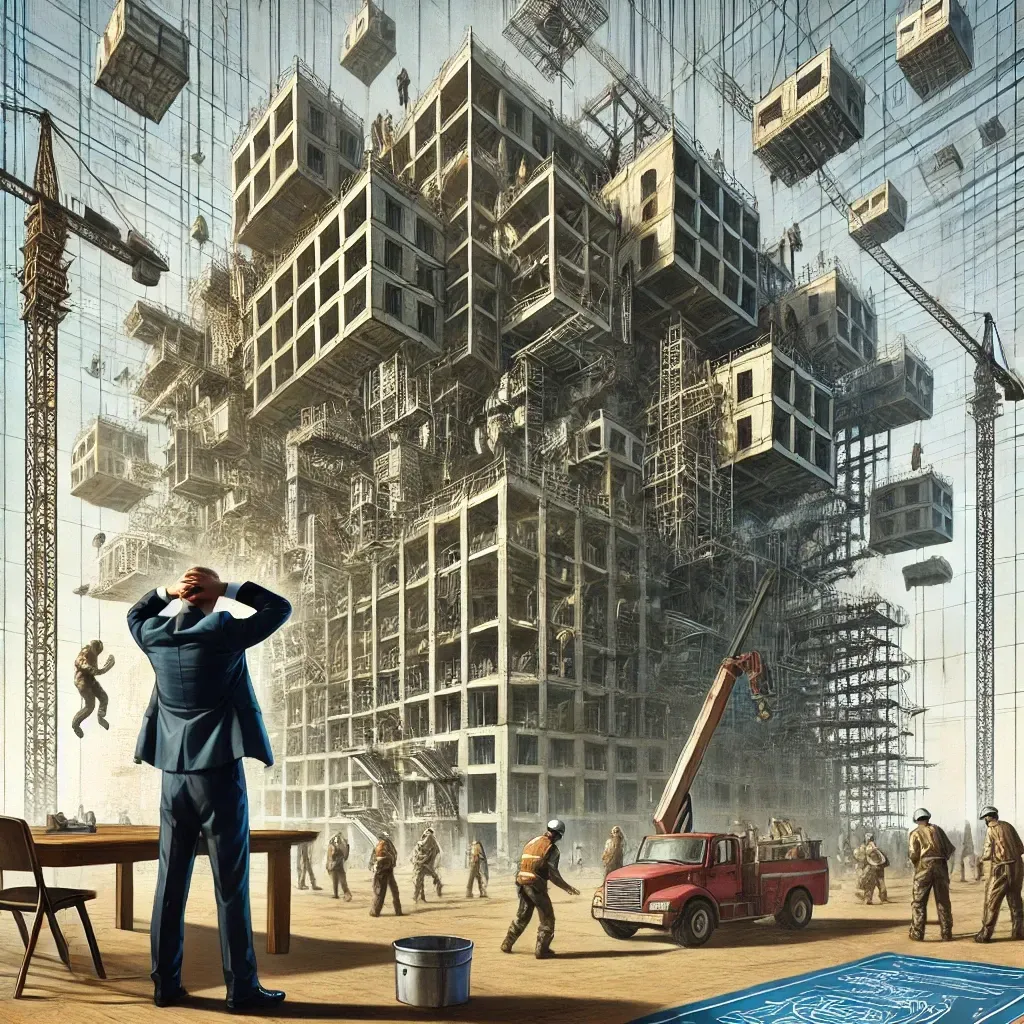The Role of a Project Manager in Construction
What Do We Really Do?

In the construction industry, project managers (PMs) are often seen as the ones who “keep things moving.” While that’s true, our role goes much deeper. We’re the bridge between the client’s vision and the construction team, ensuring projects are completed on time, within budget, and to the highest standards of quality and safety. But what does that actually mean day-to-day?
Let’s dive into the core responsibilities of a construction project manager and the skills that make the job successful.
Before construction even begins, the project manager is in charge of creating a detailed roadmap. We work with architects, engineers, and the client to define project goals, set timelines, and outline key deliverables. This planning stage is where we establish budgets, assign resources, and figure out what needs to happen and when.
A successful construction project doesn’t happen by accident. Every element—materials, labor, permits, and equipment—must align perfectly, and it’s up to the PM to make sure that alignment is clear and achievable.
Cost management is at the heart of construction project management. At the beginning of each project, we estimate costs for materials, labor, and equipment. But that’s just the start. Throughout the project, we monitor spending and ensure everything stays within budget. If an unforeseen cost pops up—a change in materials, a new piece of equipment, or a subcontractor issue—it’s up to us to either find a way to absorb that cost or work with the client to adjust the budget.
Effective cost management requires a mix of foresight, adaptability, and negotiation skills. The goal is to protect both the client’s budget and the integrity of the project.
Meeting deadlines is crucial in construction. We develop a timeline and sequence for every phase of the project, from groundbreaking to final inspection. Keeping things on schedule often means we’re coordinating multiple trades and suppliers, each with their own set of timelines. We handle unexpected delays—like weather, supply chain issues, or changes in design—and rework the schedule as needed to minimize disruption.
Staying on schedule means constantly tracking progress and problem-solving on the go. Project managers are often the first to see issues on the horizon and make adjustments so they don’t affect the bigger picture.
Construction projects bring together a lot of players: clients, architects, engineers, subcontractors, and vendors. Project managers are the central hub of communication. We keep everyone updated on progress, address questions or concerns, and ensure that everyone is on the same page.
Clear communication is key to avoiding misunderstandings, costly mistakes, and delays. We make sure that every team member understands the project’s goals, requirements, and deadlines. This can mean anything from coordinating weekly meetings to handling quick questions in the field.
Every project manager has a responsibility to uphold quality standards and enforce safety on the job site. This involves regular inspections, quality checks, and making sure that all materials and workmanship meet or exceed industry standards.
Safety is a priority. We establish protocols, provide training, and oversee site conditions to protect workers and the project itself. When issues arise, we respond quickly to address potential hazards. Quality and safety are non-negotiable, and project managers are ultimately accountable for both.
Construction projects are full of moving parts, and unexpected challenges are almost inevitable. Whether it’s a delay in material delivery, a design change, or a subcontractor issue, the project manager is responsible for resolving it. Risk management means identifying potential obstacles early on and developing contingency plans.
Problem-solving is a daily part of the job. A good project manager knows how to think on their feet, collaborate with others to find solutions, and maintain progress even when challenges arise.
As the project nears completion, it’s the project manager’s job to ensure a smooth handoff. This means going through final inspections, addressing any remaining issues, and handing over all closeout documentation to the client.
The goal is to complete the project to the client’s satisfaction and make the transition as seamless as possible. A successful handoff leaves the client confident in their investment and with all the tools they need to maintain the project.
The role of a construction project manager is multi-faceted, requiring a blend of technical knowledge, interpersonal skills, and adaptability. We’re planners, coordinators, problem-solvers, and advocates for the client’s vision. While every project is unique, the PM’s commitment to quality, safety, and efficient management remains constant.
At Moreno CMC, we pride ourselves on delivering exceptional project management services that help turn visions into reality. Whether you’re planning a commercial build or a residential project, we’re here to guide you every step of the way. Want to learn more about how a project manager can benefit your next construction project? Reach out today!
a b c d e f g h i j k l m n o - Do not remove from template!!! it is important to support different fonts



